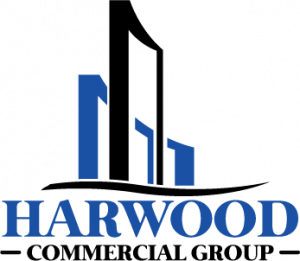LEASING VS. BUYING COMMERCIAL REAL ESTATE:
WEIGHING THE PROS AND CONS FOR TENANTS
For businesses, deciding whether to lease or buy commercial real estate is a crucial strategic choice that can significantly impact their bottom line and long-term success. Both options come with their own set of advantages and disadvantages, making it essential for commercial tenants to carefully consider their specific needs and financial goals. In this article, we’ll delve into the pros and cons of leasing and buying commercial real estate to help tenants make an informed decision.
Leasing Commercial Real Estate:
Pros:
- Flexibility: Leasing provides businesses with greater flexibility, especially for those that may be in a growth phase or uncertain about their future space requirements. Leases typically have shorter terms, allowing tenants to easily relocate or expand when their business needs change.
- Lower upfront costs: Leasing requires a smaller initial financial commitment compared to buying. Tenants typically pay a security deposit and initial rent, while the landlord covers property maintenance and major repairs.
- Easier access to prime locations: Prime commercial locations can be expensive to purchase, but leasing opens up opportunities for businesses to establish themselves in desirable areas without a hefty upfront investment.
- Predictable costs: Lease agreements often include predictable costs, making it easier for tenants to budget their monthly expenses since they won’t be responsible for property taxes, insurance, or major repairs.
Cons:
- Limited control: As a tenant, you are subject to the landlord’s rules and restrictions. This lack of control may hinder the ability to customize the space according to your business needs or branding.
- No equity building: Unlike buying, leasing does not offer the potential for building equity in the property, which could be a valuable long-term asset.
- Potential rent increases: Lease terms usually specify the possibility of rent hikes, especially in high-demand areas or when the lease is up for renewal. This could impact your business’s financial stability.
- No investment appreciation: With leasing, you won’t benefit from any appreciation in property value, which could be a substantial advantage in the long run.
Buying Commercial Real Estate:
Pros:
- Building equity: Purchasing commercial property allows you to build equity over time, which can be a significant asset for your business and even provide potential collateral for future financing.
- Stability and control: As the owner, you have complete control over the property, enabling you to customize it according to your business needs and brand image.
- Tax benefits: Buying commercial real estate often comes with tax advantages, such as property tax deductions and depreciation benefits, which can reduce your overall tax burden.
- Appreciation potential: Real estate has historically shown appreciation over time, and owning commercial property could offer substantial returns if the market conditions are favorable.
Cons:
- High upfront costs: Purchasing commercial real estate requires a significant upfront investment, including a down payment, closing costs, and potential renovation expenses.
- Lack of flexibility: Owning a property ties you down to a specific location, which could be a disadvantage if your business needs change or you want to explore new opportunities in different areas.
- Responsibility for maintenance: As the owner, you are responsible for all property maintenance and repairs, which can add to your operational expenses.
- Illiquid investment: Real estate can be a relatively illiquid asset, and selling the property might take time, especially in a slow market.
LEASING VS. BUYING COMMERCIAL REAL ESTATE:
Conclusion:
The decision between leasing and buying commercial real estate depends on your business’s specific needs, financial capabilities, and long-term goals. Leasing offers flexibility and lower upfront costs, making it suitable for startups and businesses with uncertain space requirements. On the other hand, buying provides stability, equity building potential, and tax benefits, making it an attractive option for established businesses with a clear vision for their future.
Ultimately, tenants must carefully assess their current situation and future outlook to determine which option aligns best with their commercial objectives. Seeking advice from real estate professionals and financial advisors can also be invaluable in making a well-informed decision that sets the stage for your business’s success in the years to come.
To discuss your leasing or buying options, contact Teresa Harwood,
Harwood Commercial Group, at tharwood@kw.com or 317.354.5236.


